It’s no secret that Asian Americans have transformed the American palate over the past century. Per the National Restaurant Association, 19% of all restaurants in the U.S. are Asian-owned—the largest share among minority groups. In the past decade, this influence over food has extended far beyond Chinese takeout, Thai restaurants, and sushi bars.
In 2015, matcha madness swept the country. The following year, ube—the subtly nutty and sweet Filipino purple yam—went viral. Today, you can find gochujang-flavored potato chips (inspired by the Korean red chili paste), calamansi (Philippine lime) sparkling water, and lychee hard seltzer in grocery aisles. It then shouldn’t come as a surprise that Asian Americans are influencing yet another food and beverage category: craft beer.
The existence of Asian American craft breweries isn’t a recent development. In 1994, retired engineer Oscar Wong launched Highland Brewing Company in Asheville, North Carolina. It has been dubbed the city’s “original craft brewery” for being the first legal brewery to operate since Prohibition. Since then, Highland Brewing has become a beloved household name, opening the doors for other Asian American brewers.
Still, according to a 2021 report from the Brewers Association, Asian craft brewery ownership is only at 2% (with white ownership at 93.5%, and Hispanic ownership far behind at second place with 2.2%). However, while numbers are still growing, this new wave of Asian American brewers is making an impact in other big ways. They are taking things a step further by putting their heritage at the heart of their craft.
Foundation Before Flavor
Flavor is powerful. It elicits strong memories, especially of childhood and growing up. For those in the diaspora, it also provides a sense of connection to the motherland. But, as the old Voltaire saying goes, “With great power comes great responsibility.” It’s easy for the use of now-mainstream flavors such as matcha, Thai tea, and ube to be misconstrued as trendy or gimmicky. That’s why the owners of Lucky Envelope Brewing, Raymond Kwan and Barry Chan, wanted to start simple and build up from solid ground.
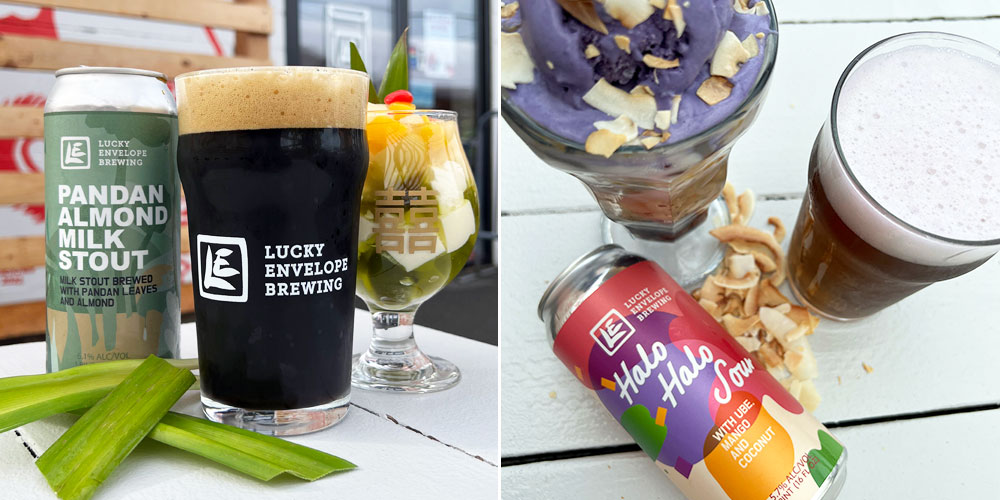
“All the beers need a strong foundation, or else you don’t have anything to stand on,” explains Chan, a former structural engineer. “We always want to make sure that our base beers are quality. After that, we have a license to have a little bit of fun.”
When they first opened in Seattle, Washington in 2015, they started with five beers on tap and only one was a culturally inspired brew: a Belgian tripel infused with the citrus punch of Thai lime leaves and the refreshing fragrance of lemongrass. “We didn’t want to pigeonhole ourselves as ‘the Asian brewery,’” says Chan. Things shifted after their beers began winning awards. They got a bronze medal at the 2015 Great American Beer Festival for their Helles Lager, and a gold for their American IPA at the 2016 Washington Beer Awards.
The success of their more traditional brews encouraged them to release flavors that speak to their experiences as the children of Chinese immigrants, their travels in Asia, and more. Chan continues, “[Those wins were] what gave us a lot of that confidence to kind of move forward.” Some of the flavors that have graced their taproom include a porter brewed with vanilla and aromatic five-spice (a spice mixture of star anise, cloves, cinnamon, Sichuan peppercorns, and fennel seeds predominant in Chinese cuisine), a crisp IPA flavored with flaked rice, a zingy ginger peach tea sour ale, and a rich ube latte cream stout.
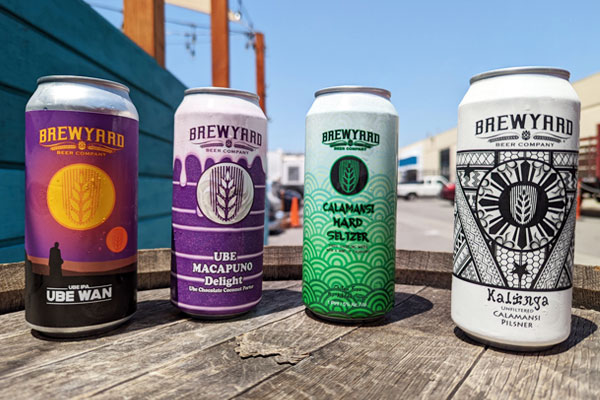
Second-generation Asian Americans Sherwin Antonio and Kirk Nishikawa had a similar frame of mind when they began Brewyard Beer Company in Glendale, California, also in 2015. The microbrewery specializes in Filipino- and Japanese-inspired craft beers, drawing from the founders’ cultural backgrounds. But they made sure they laid the groundwork.
“We just wanted to prove that we could just make good beers first, and then just kind of just naturally started experimenting with different things,” says Antonio. They began by specializing in different lager styles, with the goal of creating drinks that were flavorful, yet crisp and clean. Today, their lineup includes a Koshihikari rice lager and a matcha black lager, but also an ube coconut porter, a calamansi Pilsner, a mango kettle sour, and many others.
Unapologetically Asian
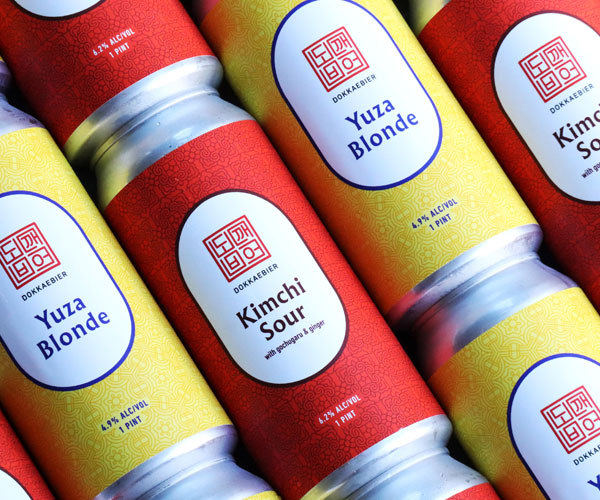
It’s the earlier new-wave breweries like Lucky Envelope and Brewyard that opened the floodgates for bold flavor. While they slowly worked up to releasing unconventional beers, Dokkaebier opened in Oakland, California, in 2020 and came out with Asian ingredients a-blazing. Their best-selling beer is their funky Kimchi Sour, mimicking the spicy, pungent, fermented vegetable side dish that is one of the most defining foods of Korean culinary tradition. The beer is made with gochugaru (Korean sun-dried chili peppers), ginger, and a lactic culture from two-year-old homemade kimchi—refreshing and tart with an aromatic finish.
“Bringing my heritage and what I know, what I have experience with and putting that into a product that I make, I felt like it was a natural move,” says Korean American owner Youngwon Lee. “We’re unapologetically Asian American in terms of what we do, with the name, the design, the flavors that we create.”
Azadi Brewing Company was also founded in 2020 by Bhavik Modi and his friend Gator Schrand. Their mission is to introduce the Chicago craft brewing scene to unique beers inspired by India’s cultural and culinary heritage. And they go to great lengths to use ingredients from India whenever possible for their small-batch beers.
For their Gir Kesar Mango IPA, they import mangoes grown in western India. The cardamom for their Kavi Golden Ale comes from the motherland, too. They also work directly with a woman-owned farm in the Himalayas for lemongrass for a beer called Cochin, a saison brewed with lemongrass tea.
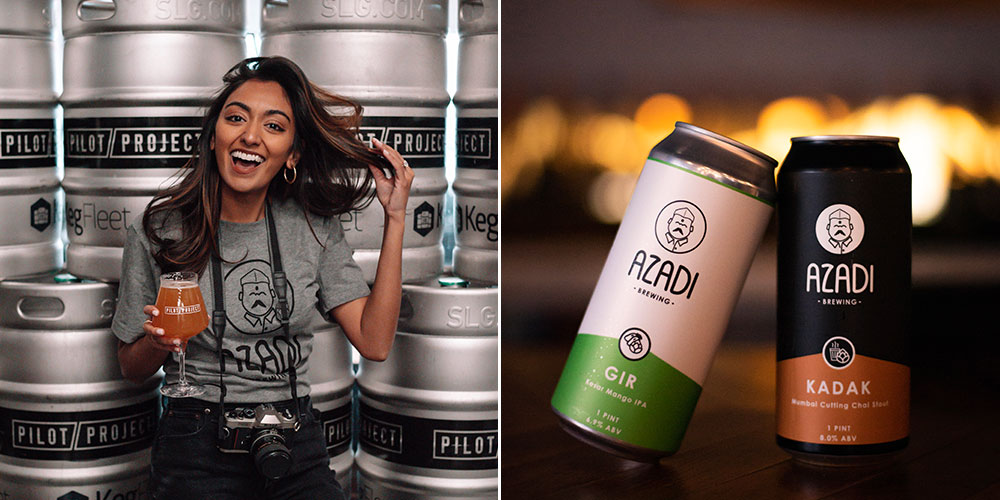
Community at the Core
Azadi Brewing’s decision to go the extra mile and source ingredients from India goes beyond desiring their quality and flavor. It’s also a matter of community. Modi—who was born in India and raised in the Midwest—reasons, “If you’re going to be an authentically Indian brand, you should work with people in India and support Indian small business owners and farmers and the community there.”
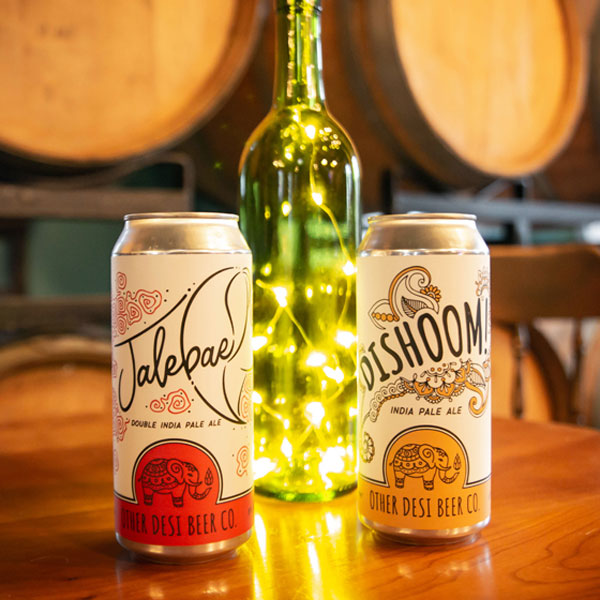
Ravi Patel, who founded Other Desi Beer Co. in New Haven, Connecticut in 2019, chooses to support various charities, including those closer to home. A portion of the sales from Other Desi’s 3 Ranis (meaning three queens in Hindi) brew—a pink guava and hibiscus sour—goes to the Breast Cancer Alliance for breast cancer research. Every year, 5 percent of the company’s profits go to a different charity of Patel’s choosing.
As cliche as it may sound, community is at the center of everything, especially for this new wave of Asian American brewers. This pertains not just to the communities that they are directly a part of, but also the ones they reach with their beer. That’s why Patel makes sure that the labels on his beers are as informative as they are beautifully designed, to educate people outside of the Indian American community about his culture and heritage.
“With my friends, we’re grabbing something to drink, or usually grabbing a beer, having a conversation with each other,” says Patel. “And I feel like that’s the perfect time to have this type of beer…to have a conversation piece.”
CraftBeer.com is fully dedicated to small and independent U.S. breweries. We are published by the Brewers Association, the not-for-profit trade group dedicated to promoting and protecting America’s small and independent craft brewers. Stories and opinions shared on CraftBeer.com do not imply endorsement by or positions taken by the Brewers Association or its members.
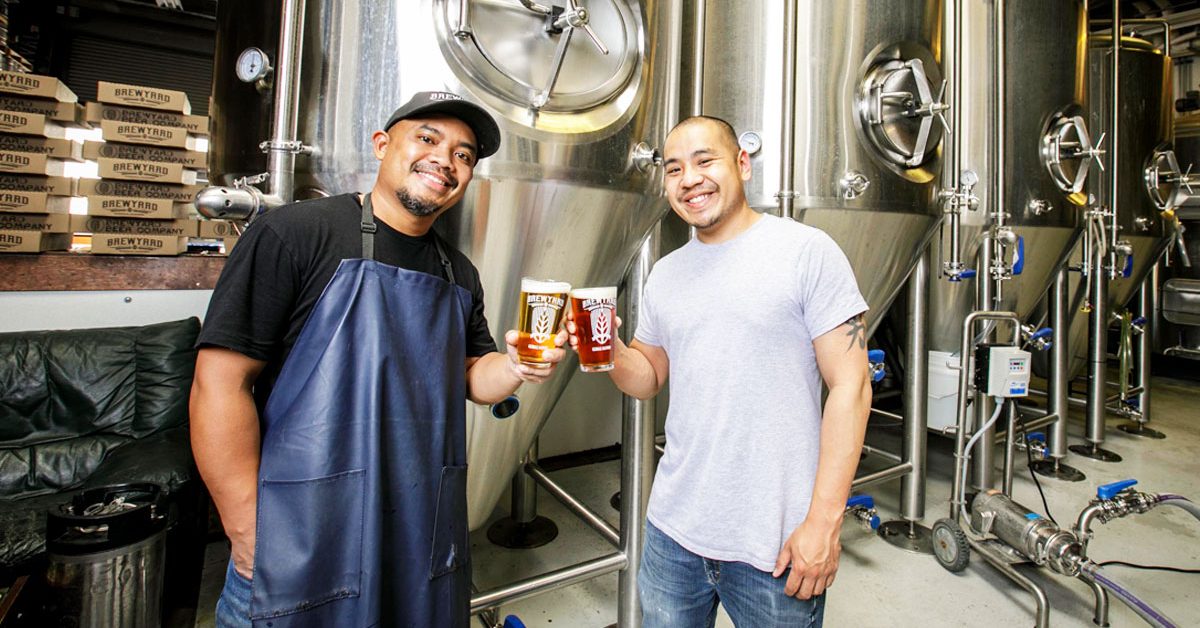

Share Post